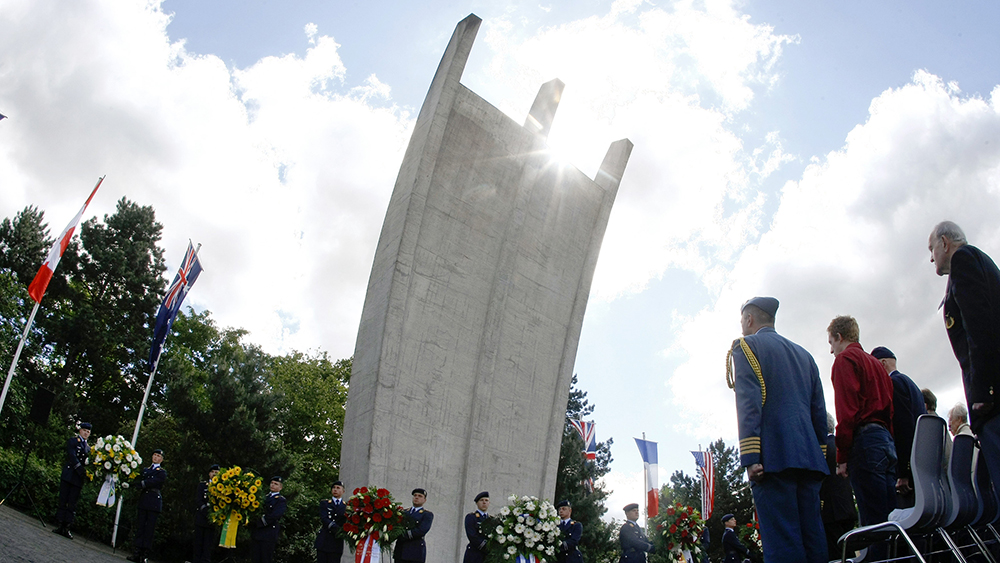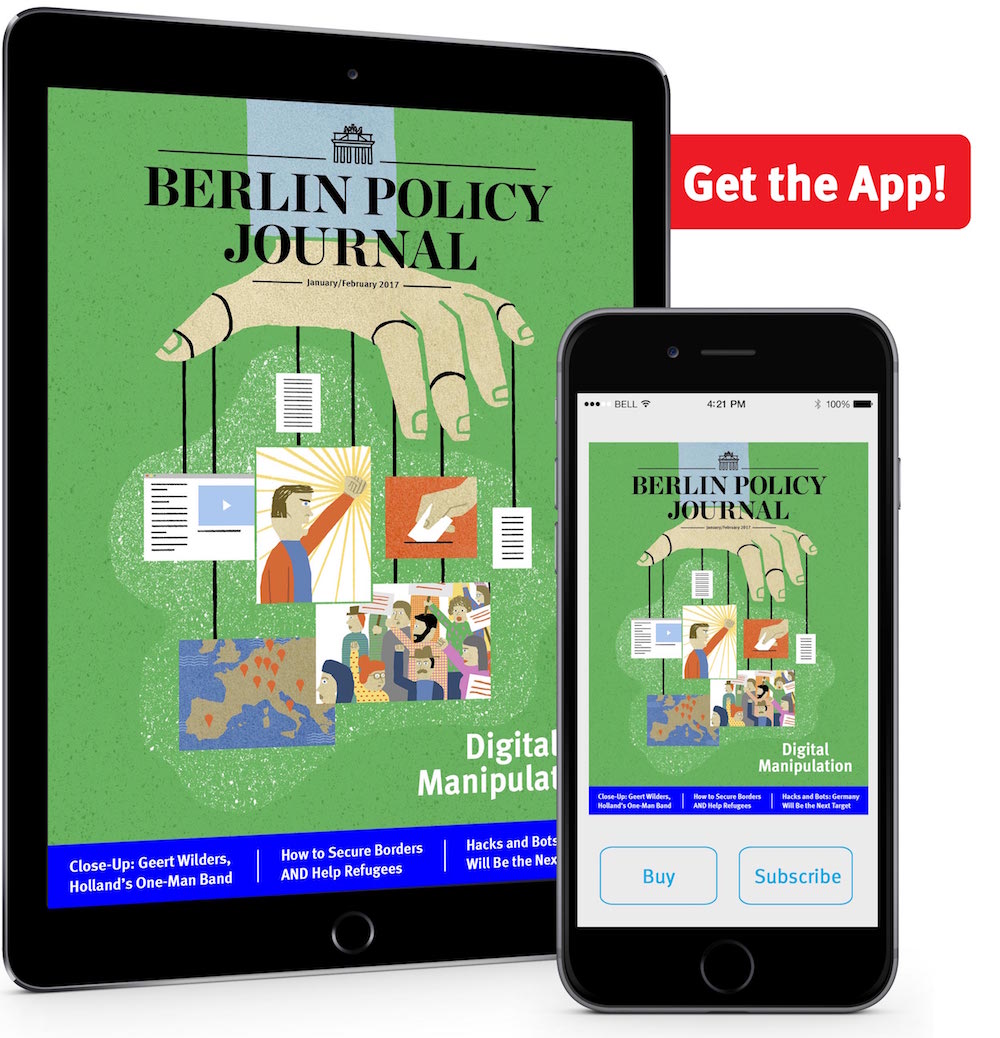With Donald Trump moving into the White House, the Atlanticists’ task has become harder still: they’ll need to convince the new administration of the lasting value of the transatlantic relationship.
I’ll admit it. I did not expect to be writing a piece with this title. Like so many on both sides of the Atlantic, I did not expect Donald Trump to win on November 8. But he did. So now committed Atlanticists need to get to work and start sketching out a common transatlantic agenda for the Trump administration. That will not be easy, especially since the term “transatlantic agenda for Trump” sometimes feels like an oxymoron. Can there be a transatlantic agenda for a US president who, during the election campaign, called into question the utility of the NATO alliance, expressed an admiration for President Vladimir Putin’s leadership style, promised to get rid of trade deals like TPP and TTIP, and said he would dismantle the Iran nuclear deal – one of the shining achievements of the transatlantic partners in recent years? Yes, but it probably will not resemble the one we would have pursued had the election gone the other way.
Had Hillary Clinton won, we would have started with the big substantive questions facing the transatlantic partners. What to do with Russia? Do we add more sanctions? Do we replace the Minsk Protocol with something else? How might we collectively save the European project? How do we make the next NATO Summit a roaring success? What do we do with TTIP during 2017 when a number of European countries will be having their own elections? What about Turkey, an increasingly important strategic ally but one that is moving away from the core principles and values the transatlantic partners hold dear?
Those questions remain on the table of course. But – depending on who will be advising Trump on foreign policy – they are likely to be paired with a different set of questions that cast the fundamentals of both US foreign policy and the transatlantic alliance in a new light. Trump and those around him are likely to ask why the United States has invested seventy years in a set of institutions and alliances like NATO. Are those institutions still relevant and do they serve America’s core interests? What is the value of free trade? Why does the US station troops overseas in places like Germany and Italy? Why should the US promote and work to uphold the values it shares with its European allies? Why should the US and its allies support a country like Ukraine?
In addition to answering questions about the overarching value of the transatlantic relationship, Atlanticists also need to prepare to work with a US administration whose day-to-day operations are unlikely to resemble that of past administrations. As many European capitals have already learned during the transition period, current protocol has been tossed out the window. The president-elect has not been issuing statements on foreign calls, not taking daily intelligence briefings. He has not relied on the State Department to help prepare him for foreign calls. He regularly tweets false statements and news. He has included his family in foreign engagements. What this means for Trump’s future engagement with European allies is unclear. But Europeans should at the very least expect the unexpected. Perhaps Trump will not attend the next NATO summit. Maybe he will not do much international travel at all. (Rumors have been swirling about his dislike of traveling overseas). Perhaps he will leave high-level foreign engagements to his vice president or another member of his cabinet. And maybe the entire nature of foreign engagements – even with our closest allies – will change in ways we cannot even imagine.
Preparing for a New Era
How should Atlanticists on both sides of the pond prepare themselves for this new era? They should start by going back to basics. Those that treasure the transatlantic relationship and want to see it thrive will have to convey to Trump himself, members of his administration, and an increasing number of European leaders who are losing faith in the relationship that it still matters. Yes, it is an imperfect relationship, one that regularly fuels frustration on both sides of the Atlantic. Sometimes we disagree with and disappoint one another. But when a crisis erupts such as the Ebola outbreak or the rise of the so-called Islamic State, the first thing Europe and the US do is call their partners on the other side of the Atlantic. Why? Because they know there is no better place in the world to find real capacity, political will, innovation, and economic leverage.
Atlanticists will also need to enlist new allies in the years ahead. That means developing and deepening relationships across the US Congress with members new and old. If, for example, the Trump administration starts to weaken or discredit the NATO alliance, Atlanticists on both sides of the Atlantic will need to work with Republicans and Democrats in Congress to push back. But developing new sets of relationships should not stop at Congress. That list should include the private sector, NGOs, and the media as well. And both sides of the Atlantic need to do a far better job of engaging their publics on broad questions of foreign policy and national security.
Furthermore, if Trump’s governing style will be firmly rooted in the “art of the deal” as his book title suggests, Europeans should start thinking about the parameters of their own deal. In other words, where exactly are Europe’s collective and individual red lines? Europeans will no doubt find some of Trump’s policies to be troubling yet tolerable. But which ones will not be tolerable? A Muslim registry? The end of the Paris agreement? A return to waterboarding? And more importantly, what would Europe put on the table either as a concession or threat to prevent such lines from being crossed?
In terms of actual substance, the Trump administration will no doubt want to engage Europeans early on Russia. Europeans would be wise to start sketching out where they would be willing to compromise. If Trump proposes lifting sanctions against Russia, for example, Europeans will want to help shape what the West gets in return. Trump has already indicated that he is seeking more Russian help in Syria. Europe should craft its own list, one that could include Russian cuts in nuclear weapons, no more snap exercises on the edge of NATO territory, no Russian interference in European elections, and a smaller Russian presence in the North Atlantic and Baltic Sea. Europe should also state unequivocally (to Russia and the US) where it will not compromise: on support for Ukraine. Leaving President Putin with the impression that the West is turning its back on its friends in Ukraine would set a very dangerous precedent, one we would all surely live to regret.
Atlanticists on both sides of the Atlantic face a daunting task in the months and years ahead. As populism rolls across political landscapes in Europe and the United States, fewer people believe in the transatlantic relationship and its indispensable role in the wider liberal order. Saving and strengthening that relationship now rests with a smaller group of Atlanticists who now must become more vocal, more creative, and more responsive to the very forces challenging it.
Read more in the Berlin Policy Journal App – January/February 2017 issue.








